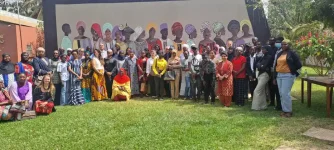Women from business, government, diplomatic circles, and universities gathered at Alliance Francaise Wednesday. They joined a roundtable about female participation in business and economic growth in The Gambia. The European Union Delegation in Banjul organized this event as part of International Women's Day celebrations. These annual March events honor female achievements across society and push for equal rights.
The meeting created a space for sharing ideas about economic power for Gambian women. Participants discussed barriers facing female entrepreneurs, including social customs, gender gaps, and harmful policies. These obstacles limit business growth and financial independence for women. Speakers included leaders from business groups, tech companies, and international organizations who shared their perspectives.
Sarata Conateh from GCCI pointed out that female business owners struggle with money management skills and finding startup funds. These problems make it hard for them to compete in areas like government contracts, building projects, and farming services. Her organization runs programs to boost financial knowledge, networking abilities, and participation in economic development. GCCI advocates for the government to create gender balance requirements in its purchasing decisions.
Beatrice Mboge described farming and gardening as profitable fields where women could build businesses. However, she explained that many cannot access community lands because of traditional practices. She called for new laws and balanced land policies from the government. Madeline Ileleji highlighted female progress in technology, online selling, and fashion design. She mentioned promising chances in the agriculture and education sectors through training, mentoring, and digital skills.
Shibu Rampedi from FAO described how women juggle household duties, community support work, and low-paying jobs. They face stereotypes and harassment that block business success. She urged action to make women active participants rather than just receiving help. Jankey Njie shared her story of returning to The Gambia to launch JARGA design, which makes luxury bags for local and international customers. She encouraged women to remain strong, dream big, ask questions, and push past challenges.
EU Ambassador Immaculada Roca i Cortes stated that countries where women have power show better success rates and economic growth. She praised Gambian women for their amazing work toward full participation in society. The ambassador noted that much remains to be done regarding human rights, education, financial access, markets, and training. Countries with more women in economic roles succeed better at reducing poverty and creating stronger and more developed communities. Women spread growth because they care for entire communities.
The meeting created a space for sharing ideas about economic power for Gambian women. Participants discussed barriers facing female entrepreneurs, including social customs, gender gaps, and harmful policies. These obstacles limit business growth and financial independence for women. Speakers included leaders from business groups, tech companies, and international organizations who shared their perspectives.
Sarata Conateh from GCCI pointed out that female business owners struggle with money management skills and finding startup funds. These problems make it hard for them to compete in areas like government contracts, building projects, and farming services. Her organization runs programs to boost financial knowledge, networking abilities, and participation in economic development. GCCI advocates for the government to create gender balance requirements in its purchasing decisions.
Beatrice Mboge described farming and gardening as profitable fields where women could build businesses. However, she explained that many cannot access community lands because of traditional practices. She called for new laws and balanced land policies from the government. Madeline Ileleji highlighted female progress in technology, online selling, and fashion design. She mentioned promising chances in the agriculture and education sectors through training, mentoring, and digital skills.
Shibu Rampedi from FAO described how women juggle household duties, community support work, and low-paying jobs. They face stereotypes and harassment that block business success. She urged action to make women active participants rather than just receiving help. Jankey Njie shared her story of returning to The Gambia to launch JARGA design, which makes luxury bags for local and international customers. She encouraged women to remain strong, dream big, ask questions, and push past challenges.
EU Ambassador Immaculada Roca i Cortes stated that countries where women have power show better success rates and economic growth. She praised Gambian women for their amazing work toward full participation in society. The ambassador noted that much remains to be done regarding human rights, education, financial access, markets, and training. Countries with more women in economic roles succeed better at reducing poverty and creating stronger and more developed communities. Women spread growth because they care for entire communities.












